People
Our Steering Committee
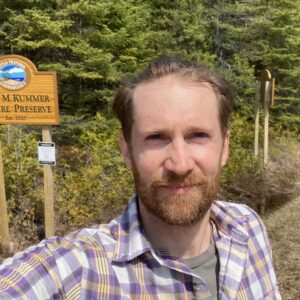
Derek Shiels
Little Traverse Conservancy
Derek Shiels joined Little Traverse Conservancy (LTC) in 2014 and leads the Stewardship Department, which manages the recreational assets, ecological integrity, and property boundaries for more than 25,000 acres spread across a five-county region centered around the Straits of Mackinac. Derek’s work at LTC includes the wise care-taking of the lands and trails that LTC has been entrusted with as well as envisioning and bringing about new ways to help people experience nature and to conserve the region’s rich biodiversity. Derek also serves as a city council member for the City of Petoskey, where he invites everyone to participate in shaping their shared lives together. Prior to LTC, Derek worked with the Leelanau Conservancy, in private environmental consulting, and with the Missouri Department of Conservation’s cave biologist. He still operates Northern Habitats, a private consulting business that provides him with an outlet to botanize. He is a past president of a chapter of the Michigan Botanical Society, and currently serves on a technical committee for United Way, and as one of the founding members of InvestMitt, a nascent grassroots community organization attempting to build a community investment fund in the Little Traverse Bay region. Derek pursued his childhood passion for nature while attaining degrees from Taylor University, Grand Valley State University, the National Outdoor Leadership School, and Central Michigan University.
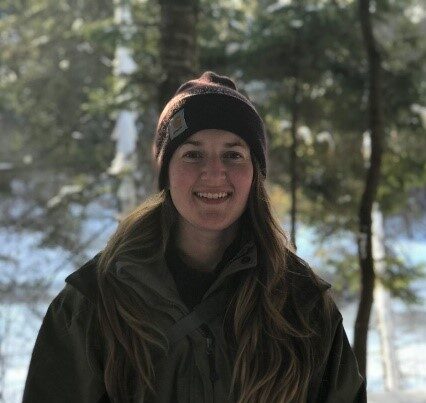
Danielle "Dani" Fegan
US Fish and wildlife Service
In 2023, Dani joined the United States Fish and Wildlife Service (USFWS) Coastal Program team as a biologist and the lead for the St. Mary's River and Straits of Mackinac focus area. Dani’s work focuses on promoting conservation and restoration of coastal systems in this geography, with a particular focus on work that benefits federal trust species. In this role, Dani aims to make connections between conservation partners and the technical and financial resources they need to get this important work done. Her professional interests include collaborative coastal wetland restoration, conservation planning, decision science, invasive species management, and wildlife monitoring. Prior to joining the USFWS Coastal Program team, Dani worked for the Sault Ste. Marie Tribe of Chippewa Indians (Sault Tribe) as an assessment biologist within the Natural Resources Department – Wildlife Program for six years. Dani is currently a Ph.D. candidate at Michigan State University in the Department of Fisheries and Wildlife and is working toward a dual degree in Ecology, Evolution, and Behavior as a student in the Center for Cooperative Ecological Resilience, a Sault Tribe-university partnership. Dani’s research aims to bring Anishinaabe values and community perspectives into decision-making processes for natural resources stewardship and focuses on stewardship planning for a suite of upland birds in the eastern Upper Peninsula. Dani grew up in Sault Ste. Marie, MI, and is happy to call the St. Marys River home. In her free time, she enjoys gardening, hiking, and swimming in the big lake.
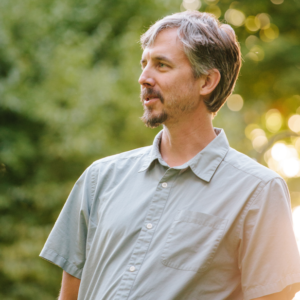
Adam Schubel
UM- Biological Station
Adam is the resident biologist at the University of Michigan Biological Station. He grew up in Marshall, Michigan. After graduating from the University of Michigan, Adam served in AmeriCorps in Harbor Springs and later, with his wife Stephanie, in the Peace Corps in Puebla, Mexico. He earned an MS in Environmental Studies from Antioch University New England, where he studied biology education. Prior to his current position, Adam served as a botanist and environmental scientist at Stantec, where he worked on restoration and vegetation monitoring following the 2010 Enbridge oil spill in his hometown. Adam’s interest in UNESCO Biosphere Reserves began when he was undergraduate at UMBS in 2002, and he noticed an inconspicuous plaque on the wall commemorating the designation of the University of Michigan Biological Station Biosphere Reserve in 1979. UNESCO’s global program devoted to “harmonizing the needs of people and nature” became fixed in his memory. When the opportunity later arose, Adam participated in brainstorms that inspired the Obtawaing Biosphere Region, and he has continued to represent UMBS in the developing organization since that time. Adam has always had a sense of this work as, in the words of Daniel Kemmis, “not any one person’s idea, or in fact any group of people’s idea…(but) the world at work on itself, getting something done which the world knows to be in need of doing.”
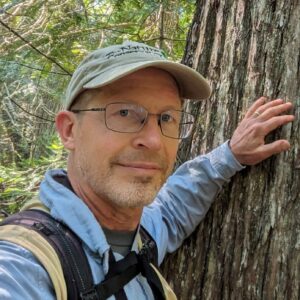
Doug Pearsall
The Nature conservancy
As a Senior Conservation Scientist for The Nature Conservancy in Michigan, Doug manages the science team for TNC in Michigan and coordinates research and monitoring projects in support of priority conservation strategies for Michigan and the Great Lakes. He co-led the development of biodiversity conservation strategies for Lake Michigan and Lake Erie and contributed to similar strategies for each of the other Great Lakes. He represents TNC on the steering committee of the Obtawaing Biosphere Region and on the Great Lakes Coastal Assembly. He is a co-leader of the Saginaw Bay Monitoring Consortium, which has established a comprehensive water quality monitoring network for Saginaw Bay and its tributaries. He is a trained Conservation Coach and serves on the core team of the North American Regional Network of the Global Conservation Coaches Network, an international organization applying, promoting, and advancing the Conservation Standards. Doug received his Ph.D. in natural resources in 1995 from the University of Michigan School of Natural Resources and Environment (SNRE), Ann Arbor. He and his wife Nancy have two grown sons and live in East Lansing, Michigan.
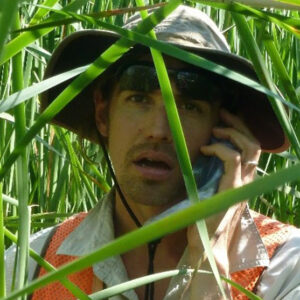
Shane Lishawa
Loyola University-chicago
Shane Lishawa is a wetland ecologist and faculty Research Associate at Loyola University Chicago. His applied research aims to bridge the gap between ecological research and restoration and conservation. In partnership with tribes, conservation organizations, and government agencies, Lishawa his team are conducting large-scale adaptive ecological restoration experiments that test methods to treat invasive species, restore biodiversity, and improve habitat values. His basic research focuses on the interplay between invasive plant species and biodiversity, plant community dynamics, nitrogen and carbon cycling, and water level change in Great Lakes coastal wetland ecosystems. Lishawa developed his connection with the ecosystems of the Obtawaing Biosphere Region early in life, growing up in Traverse City, Michigan. His dedication to conservation and restoration was sparked by observing the rapid development of the region as a youth.
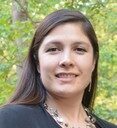
Emily Proctor
Michigan State University
Emily Proctor, MSW, BASW, earned her degrees from Michigan State University – School of Social Work. She is a citizen of the Little Traverse Bay Bands of Odawa Indians, Harbor Springs, Michigan. She serves as a Tribal Extension Educator, Government and Community Vitality Institute for Michigan Tribal Nations, Communities and Colleges with her home office located in Emmet County. As the Tribal Extension Educator her projects include the development, delivery, and evaluation of educational programs in the areas of Tribal Governance, Facilitation, Diversity, and youth leadership. She was elected to Tribal Council in 2019 to serve a four year term. She has also worked as a Child Protective Services Worker, as an associate Child Welfare Commissioner and was elected three times to be the Speaker of the Annual Community Meeting for her Tribal Nation. She enjoys making quilts as a way to contribute to her community.

Samantha Nellis
Huron Pines
Samantha Nellis is the Water Program Director at Huron Pines, a conservation nonprofit with the mission to conserve and enhance Northern Michigan’s natural resources to ensure healthy water, protected places and vibrant communities. Samantha oversees the implementation of on-the-grounds projects that aim to curb stormwater runoff, reconnect aquatic habitat and enhance shoreline habitats on Lake Huron. Samantha leads programming and partnerships that bring together community leaders, conservation professionals and agency representatives to increase coordination and impact across watersheds. She holds a Bachelor of Science in Biology from Northland College in Ashland, WI and a Master’s in Environmental Science and Policy from the University of Wisconsin-Green Bay. Samantha is passionate about conserving wild places, protecting overlooked species and enjoying clean water. Outside of the office she enjoys camping, canoeing, skiing and biking with her family.
Advisors and Support Staff
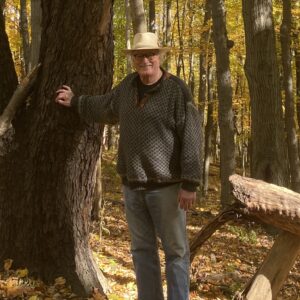
Knute Nadelhoffer
University of Michigan
Professor Emeritus, University of Michigan Dept. of Ecology and Evolutionary Biology Former Director, University of Michigan Biological Station (2003-2020) Knute retired from the U-M in December of 2020 after enjoying a long and decorated career in science. He earned his PhD at the University of Wisconsin (1983), progressed from Post- Doctoral Research through Senior Research Scientist at the Marine Biological Laboratory’s Ecosystems Center in Woods Hole, MA (1983-2002), served as a Fulbright Fellow at the Norwegian Institute of Water Research inOslo (1996-97), was co-Director of the National Science Foundation’s Ecosystem Studies Program (2002-03), and accepted an invitation as Guest Professor at the University of Copenhagen (2017). He is a Fellow of the American Association for the Advancement of Science (AAAS) and the Ecological Society of America (ESA). Knute studies ecological and biogeochemical processes that determine ecosystem dynamics and functioning at local, regional, and global levels. He conducts field studies in temperate forests and arctic tundra to improve understanding of how ecosystems respond to climate change, air pollution and physical disturbance. He is particularly interested in how interactions among soil biota, plants and climate interact to determine ecosystem structure and stability. He works to apply science to Environmental problems in his positions as a member of the Environmental Law and Policy Center’s (ELPC) Board of Directors and as the founding Chair of ELPC’s Science Advisory Council. He continues work he began as UMBS Director to improve relations between the U-M and northern Michigan land conservancies, lake associations, and tribal nations.
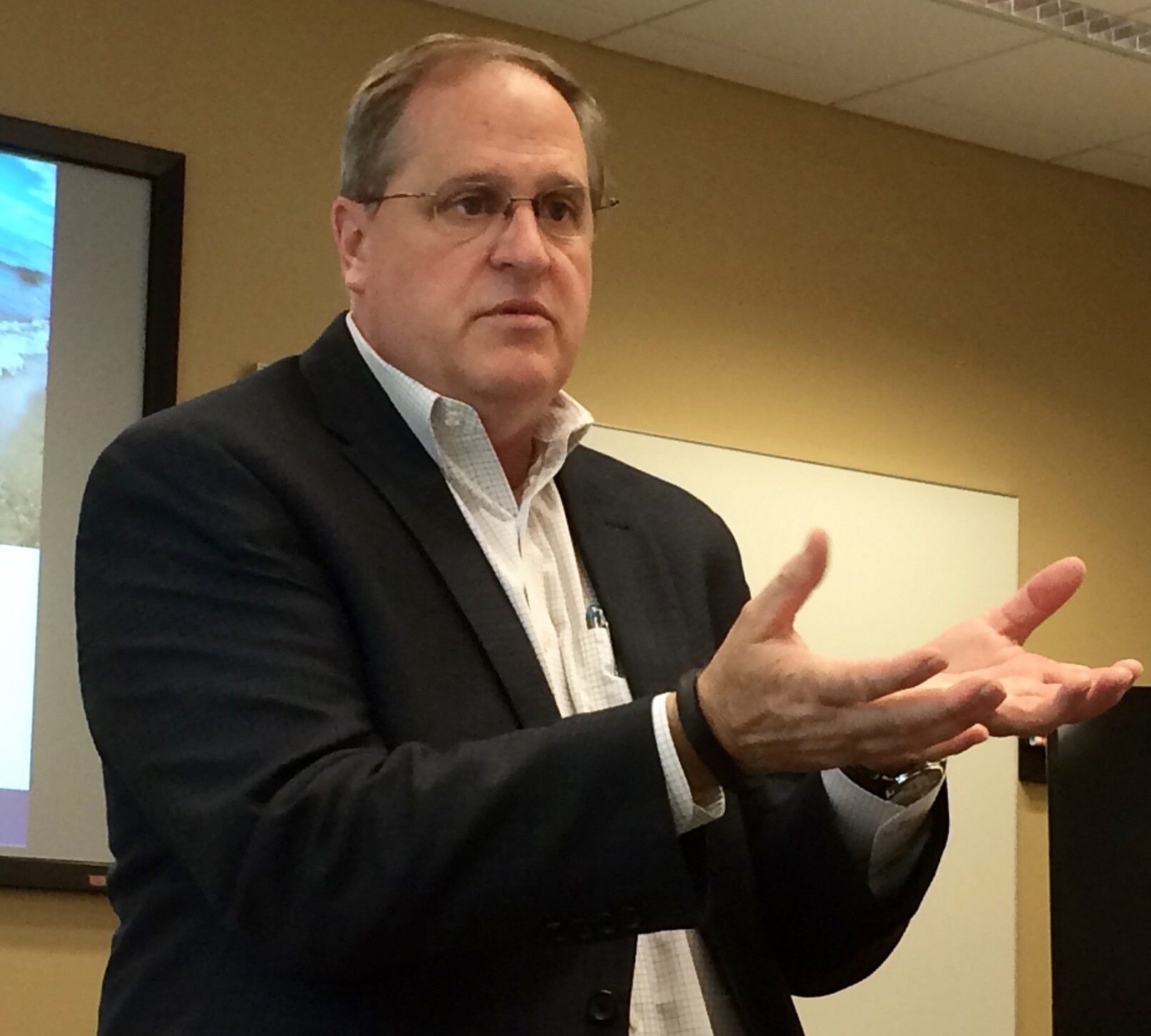
Jon W. Allan
US Biosphere Network
Jon W. Allan joined the School for Environment and Sustainability at the University of Michigan in 2019. His work focuses on the enterprise of sustainability related to the intersection of ecological, economic, social and cultural value. He seeks to understand and influence the rate at which the region is adopting and implementing the principles of a sustainable and just society. Jon is also the President and Founder of the Jon W. Allan Group, a private consultancy specializing in strategic insight for freshwater and the Great Lakes, energy and environmental policy and natural resource governance. He retired as the Director of the Office of the Great Lakes in 2019 after contributing his experience in science and policy to the office’s mission to protect, restore, and sustain the Great Lakes. Prior to that he served in corporate executive positions at in environmental and energy management, government and regulatory affairs, and strategy development. He has worked in the non-profit sector and in arts management. He has taught courses in biology, marine zoology and island ecology and environmental impact assessment. He holds a BS degree in Fish and Wildlife, and a MS in Zoology/Aquatic Ecology from Michigan State University and completed additional graduate work in Environmental Policy and Law also at MSU. Jon’s research on wetlands, stream ecology, water policy, and governance has been published in Canada and the U.S. Organizations and organizations rely on his expertise to advise on strategy, environmental planning, governance and policy across the region.
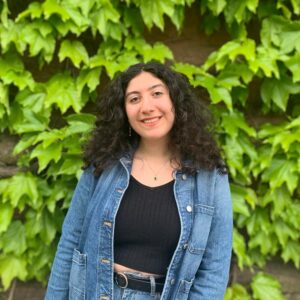
Manar Talab
OBR Partnership Coordinator
Manar Talab is a recent graduate of Princeton University with a degree in Ecology and Evolutionary Biology. She has served at the Obtawaing Biosphere Region's Climate Solution intern since April 2023. She primarily works on Climate Adaptation planning for the region and has created a variety of resources to serve that end. Manar is also involved with the United States Biosphere Network and is currently a member of the Youth Board. Since childhood, she has been passionate about resotring and preserving the wild spaces. Born and raised in Metro-Detroit, Manar has spent many summers on the shores of Lake Huron and in this role she has gained a new appreciation for northern Michigan's landscapes. Manar has ambitions for a career in ecological restoration and community ecology that she hopes to pursue after graduate school. In her role as OBR's climate intern , Manar has most enjoyed connecting with the communities and landscapes in the region.
